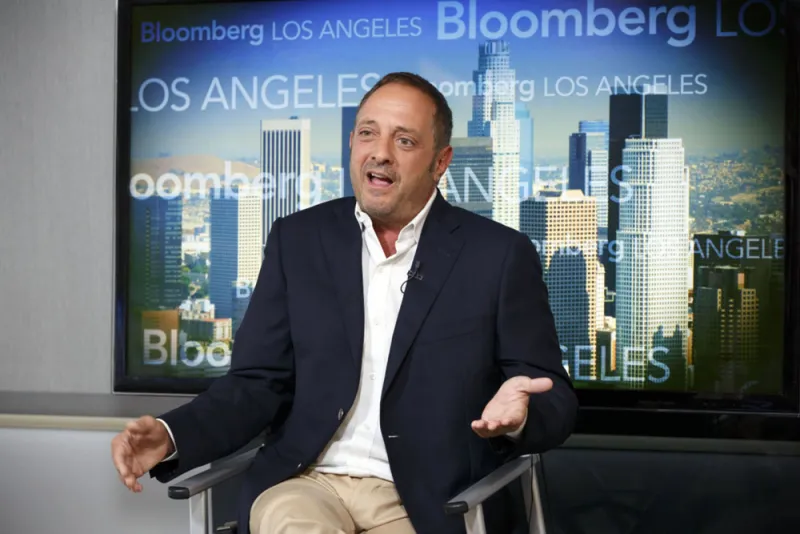Renowned short seller Andrew Left appears to have taken the lessons of the GameStop saga to heart.
Not only has he forsaken going public with short ideas, his firm Citron Research’s best idea of 2021 is a stock that is among the most heavily shorted in the market.
And, as the Reddit crowd showed in the GameStop frenzy, heavily shorted names are eminently squeezable.
About 42.5 percent of the float of Root Insurance — the long idea Left unveiled Thursday after the market closed — is sold short, according to S3 Partners, which tracks short selling. Left told Institutional Investor that Root is the most heavily shorted stock on the Nasdaq of any company with a market capitalization of more than $1 billion. (A few days ago, S3 Partners calculated the short interest closer to 80 percent of the float.)
At the same time, the beleaguered Root is one of the most popular names among the smart money in the venture capital world, with investors including Tiger Global Management, Coatue Management, Silver Lake Partners, and Dragoneer Investment Group.
“The shareholders of this company are a who’s who of shareholders,” Left told II. “You do not get better.”
The problem is that many of those shareholders are now losing money on their investment. And because Root only went public last October, these investors can’t sell their shares until April 26.
Short sellers say that has created a technical situation that limited the float and offered the conditions for a short squeeze. But it’s a short-term phenomenon.
“There’s a lot of smart money that looks dumb right now, and in 30 days they’re going to want to get out of this thing,” said one short seller.
Left disagrees, calling Root a “misunderstood short.”
Root’s top two shareholders, Dragoneer and Silver Lake, bought into the initial public offering of Root last October, at $27 per share, Left noted in his presentation, which was made on Twitter Spaces. Each put in $250 million.
The stock has fallen more than 50 percent since the IPO, closing at under $13 on Thursday. It was up almost 5 percent Thursday afternoon amid heavy call buying before Left’s much-anticipated presentation. It continued to rise in after-hours trading.
Other big shareholders are Coatue — the third largest as of December 31 — and DST Global. The two led a Series E financing round at a reported $3.65 billion valuation, according to Pitchbook, which calculates the current market cap at around $3 billion. The Series I was the last equity round before the IPO.
Growth funds run by Tiger Global (also an early stage investor), Valiant Capital Management, WhaleRock Capital Management, Centerbridge Partners, Redpoint Ventures, Ribbit Capital, and Hillhouse Capital Group are also big holders, according to regulatory filings.
Root gained the attention of the VC world because it uses an app that tracks driver behavior to calculate insurance premiums, instead of relying on the standard approach that looks at age, gender, and driving records.
“The best tech funds in the world understand the enterprise software aspect of the company,” Citron Research’s report on Root claimed.
Speaking to II, Left said that the old way of calculating auto insurance premiums is “racist and biased.”
“The mission of Root insurance is that traditional car insurance perpetuates economic and racial inequality in this country. Root has an ESG, do-good angle,” he said on Twitter Spaces. “It takes away the color of skin, what’s your education, what’s your credit score from your car insurance and breaks it down to how good of a driver are you.”
But short sellers have a litany of complaints about the company, many of which have been detailed by Edwin Dorsey on his weekly publication The Bear Cave. (Dorsey doesn’t short, but sells his report to short sellers, among others).
In his reports, Dorsey claimed, among other problems, that the company’s results were due to undisclosed price increases, which were the focus of many complaints by consumers he received through Freedom of Information Act requests. Root received more complaints than other insurers, Dorsey noted.
“Root would hike prices up by a lot for no reason,” Dorsey said. On March 22, he tweeted, “Root Insurance is a scam company that is misleading consumers, investors, regulators, and stealing from the disabled.”
A purported class action lawsuit against the company and its executives was filed March 19 in the Southern District of Ohio, Eastern Division, with plaintiff investors arguing that Root’s IPO documents failed to disclose that “Root would foreseeably fail to generate positive cash flow for at least several years following the IPO; accordingly, the company would foreseeably require significant cash infusions to meet its cash flow needs.”
It also noted that on March 9, Bank of America Securities analyst Joshua Shanker “initiated coverage of Root with an ‘Underperform’ rating on the premise that the company is unlikely to be cash flow positive until 2027.”
The BofA analyst noted that other insurers, Progressive and Allstate, have a “sizeable advantage” in the type of technology that Root is using to gather data on its customers, according to the complaint.
“The crème de la creme of the growth funds own it, and it’s a bad business,” said one short seller. “It’s abusive to its customers, and the stuff they want you to believe is cutting edge isn’t.”
But Left argued that even if Root only captures 2 percent of the market, it could be a “$50 to $60 to $70” stock, adding that he leaves the technology issues “to the experts.”
“Could they fail? 100 percent,” he said. “But we’re not going to know for years.”
“You probably have the greatest list of tech investors I’ve ever seen in one company in the most highly shorted stock on the stock exchange that’s trying to do good,” Left continued. “It makes no sense whatsoever,” he concluded.
Root did not return a request for comment by presstime.







